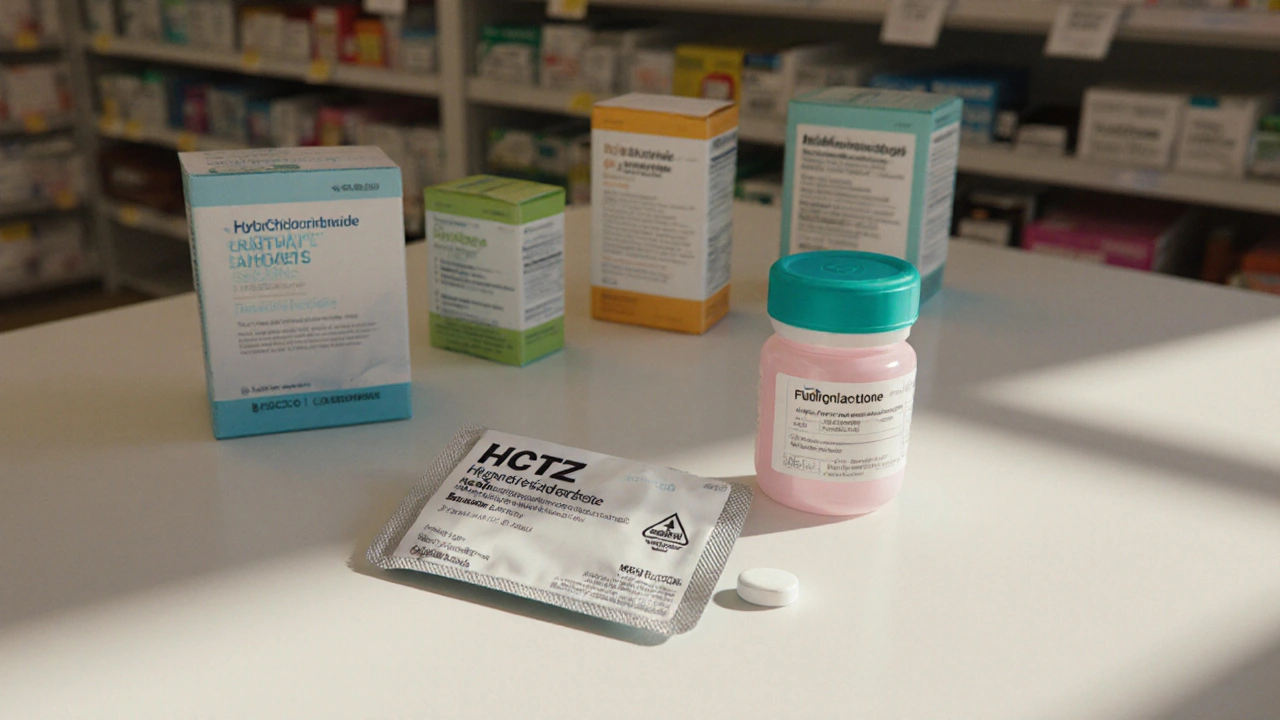
Hydrochlorothiazide vs Alternative Diuretics: Detailed Comparison
A clear comparison of Hydrochlorothiazide with its main alternatives, covering efficacy, side effects, cost, and when to choose each option.
If you’ve been told you need medicine for high blood pressure, you’re not alone. Millions take a pill every day to keep their heart happy. The good news? Most of these drugs are predictable, cheap, and work well when you follow a few simple rules.
First, know why the medication is needed. High blood pressure (hypertension) forces the heart to pump harder, which can damage arteries over time. Medicines lower that pressure by relaxing blood vessels, slowing the heart, or helping the kidneys get rid of extra fluid. Understanding the basic goal makes it easier to stick with the plan.
ACE inhibitors (like enalapril or lisinopril) stop a hormone that narrows blood vessels. The result is smoother blood flow and less strain on the heart. ARBs (such as losartan) do a similar job but are gentler on the cough‑prone.
Beta blockers (metoprolol, atenolol) slow the heart rate and lower the force of each beat. They’re great if you have both high pressure and a fast heartbeat. Calcium‑channel blockers (amlodipine, diltiazem) relax the muscle in artery walls, making space for blood to flow.
Diuretics (hydrochlorothiazide, furosemide) act like a mild water pill. They tell the kidneys to release extra salt and water, dropping the volume of blood the heart has to push.
Doctors often combine two or three classes for stronger control. The combo you get depends on your age, kidney health, and other conditions like diabetes.
Take your pill at the same time every day – morning works for most, but some need it at night to avoid dizziness. If you miss a dose, take it as soon as you remember unless it’s almost time for the next one; then just skip the missed one.
Watch for common side effects: a dry cough with ACE inhibitors, slight swelling with calcium‑channel blockers, or extra trips to the bathroom with diuretics. Most issues fade after a week, but if they linger, call your doctor. Never stop a medicine abruptly; that can spike your pressure.
Keep a short log of your blood pressure readings, how you feel, and any new symptoms. Sharing this with your clinician helps fine‑tune the dose faster than guessing.
Lifestyle still matters. Salt‑rich foods, heavy alcohol, and a sedentary routine can blunt the effect of any pill. Cutting back on processed snacks, adding a 30‑minute walk, and staying hydrated give the medication a better chance to work.
Finally, store your meds in a cool, dry place and check the expiration date. If a bottle looks discolored or smells odd, toss it and get a fresh prescription.
Managing high blood pressure isn’t a mystery – it’s a mix of the right drug, a steady routine, and a few healthy habits. Follow these basics, keep the conversation open with your healthcare team, and you’ll stay on track without the guesswork.

A clear comparison of Hydrochlorothiazide with its main alternatives, covering efficacy, side effects, cost, and when to choose each option.

Looking for alternatives to Amlodipine in 2025? This article dives into some of the most effective substitutions available, each with distinct characteristics. From Doxazosin's dual benefits to the rapid action of alpha-blockers, explore the options, their pros, and their potential drawbacks, helping you make informed choices for managing hypertension.